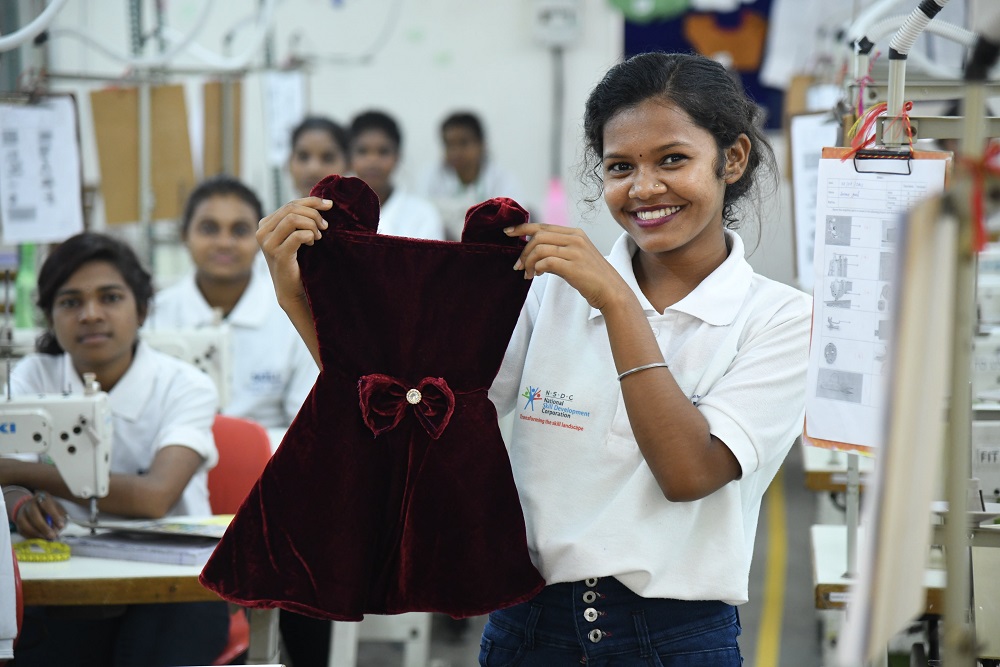Upskilling is vital for the sustained growth of the Indian industry, boosting female representation across a spectrum of sectors and creating wider opportunities
In today’s era of rapid socio-economic advancement, skill development plays a pivotal role in driving national progress by generating sustainable livelihood opportunities. This is especially true for countries with a substantial population of young individuals, such as India. While existing governmental initiatives such as Skill India and Pradhan Mantri Kaushal Vikas Yojana (PMKVY) are leading the charge in this direction, the effort also needs active participation of corporations who can chip in by expanding the ambit of their skill development efforts to both employees and community members alike.
The manufacturing sector in particular, which employs more than 27.3 million people across India and contributes to 17% of the country’s GDP, can help immensely by creating comprehensive skill development opportunities for both employees and the communities. This concerted effort by both public and private will propel India towards a future full of possibilities.
Going beyond the business
Skill development within corporations is already a near-perfect artform. There are several avenues available today to upskill employees, such as e-learning, workshops, and masterclasses, boosting employee productivity and thereby profitability of the company. This same emphasis on constant upgrades and skill enhancement needs to be now extended to the community members in the vicinity of their operations as well.
Corporations can address the growth needs of local communities as well, by establishing tailor-made skilling programs that help meet their development needs. For instance, by equipping youth with the in-demand skills that enhance their employability and open doors to meaningful livelihoods. Collaborations with educational institutions and skill development institutes further intensify their impact by providing access to specialized training facilities and expertise, ensuring that the programs closely align with prevalent industry standards as well. Corporations can also tap into their community networks by engaging with local self-help groups (SHGs) and co-operatives. By empowering such groups, corporates help foster entrepreneurship, sustainable economic development, and vibrant local economies.
For instance, Vedanta Aluminium, through its Subhalaxmi Co-operative in Jharsuguda, Odisha, is providing women entrepreneurs with the necessary resources, training, and financial assistance to achieve their economic independence, and contributing to the growth of their communities. Moreover, the company is also helping preserve India’s cultural heritage by showcasing traditional arts such as Dhokra, an exquisite metalworking art form that dates back to the Indus Valley Civilization and has been a part of the nation’s rich handicraft legacy for over 4000 years. It is empowering local artisans with modern techniques, creating a fusion of tradition and market demands, driving economic growth and entrepreneurial opportunities. BALCO, India’s iconic aluminium producer in Chhattisgarh and a subsidiary of Vedanta Aluminium, has also implemented the Mor Maati, Mor Maati program which is training farmers in more sustainable and productive farming techniques. Through these efforts, nearly 15,000 youths across India have been trained through the company’s skill development initiatives.
A win-win for community and company: Such training programs serve a dual purpose. One, by creating skilled workers from within the community who can contribute to the nation’s progress by entering the socio-economic mainstream through gainful employment. Two, by developing into a pipeline of skilled talent who may be absorbed into the company’s workforce.
On-the-job training by experienced workers or external trainers in form of workshops and mentorships supported by global standard of curriculum is an effective way to hone the skills of young employees. It enables individuals to learn industry-specific skills, gain job-related knowledge, boost confidence, familiarize themselves with the company’s culture and procedures, and enhance their overall performance. Additionally, providing formal training courses to employees creates a structured learning environment, and broadens the range of skills employees can acquire. The goal should be to create leaders for the entire industry by ensuring rich job content and cultivating and empowering employees through internal growth workshops and focused training programs.
Project Panchhi, an initiative developed under the direct guidance of Vedanta’s Chairman Mr. Anil Agarwal, seeks to achieve exactly this objective. 1000 girls from less-privileged communities across India, who are at risk of foregoing their education due to socio-economic constraints, will be hired at the company’s operations. Here, they will receive access to on-the-job skill training, in additional to financial support for their continued education. Project Panchhi was launched at Vedanta Aluminium’s operations in Lanjigarh with over 40 girls identified for onboarding in Phase 1 of the program.
Women’s low labour participation rate in the manufacturing industry can be addressed through such initiatives, as they bring a wealth of skills and perspectives to the workforce. Upskilling efforts directly contribute to bridging the gender gap in the industry, fostering a more diverse and inclusive workforce. Skill development initiatives that help women explore different industry job roles can significantly improve retention rates.
Closer collaboration between the government and the private sector will ensure that India has the skilled workforce necessary for success in the global economy. Upskilling is vital for the sustained growth of the Indian industry, boosting female representation across a spectrum of sectors and creating wider opportunities. It represents an investment in both the industry’s and the nation’s progress as a whole, together achieving an ‘Aatmanirbhar Bharat’.
(This article is authored by Sunil Gupta, COO, Vedanta Ltd – Aluminium Business)



